
SIFT-MS Solutions That Protect People
This brochure outlines several SIFT-MS solutions that provide protection for employees and the general public including fumigant and toxic chemical detection, border security and customs, chemical warfare agent identification, and indoor air safety.
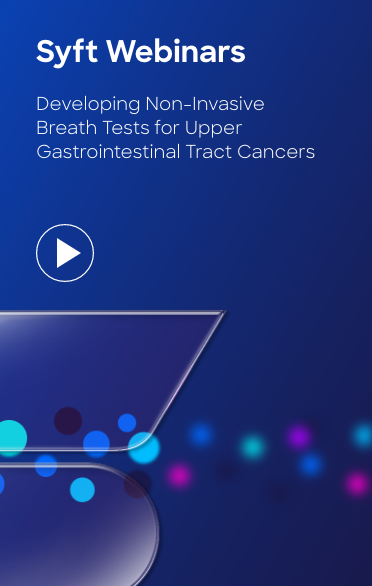
Developing Non-Invasive Breath Tests for Upper Gastrointestinal Tract Cancers
In this webinar, we describe:
• Why early detection of gastro-esophageal cancers is so challenging
• Research utilizing SIFT-MS, with potential screening applications
• Future external validation work using Thermal Desorption-SIFT-MS
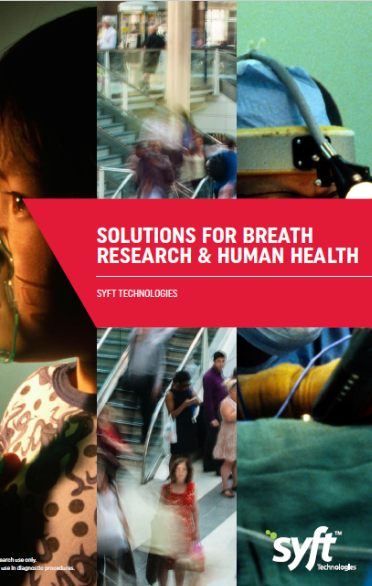
Healthcare Solutions by SIFT-MS
This brochure outlines several SIFT-MS based breath and medical research solutions provided by Syft Technologies. Real-time results are provided to diverse breath and microbial research applications, including non-invasive population screening, breath VOCs monitoring, and the rapid identification of microorganisms by their VOC fingerprints.
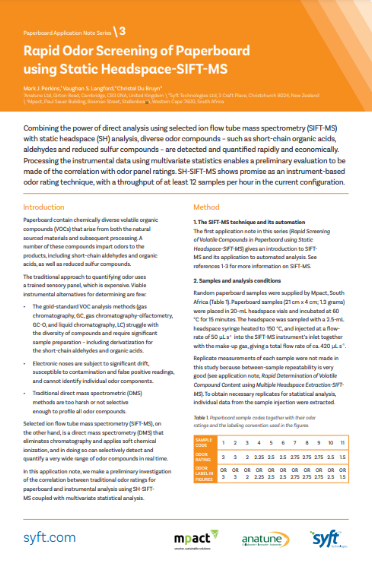
Paperboard Volatiles 3 - Odor Rating
SH-SIFT-MS provides an instrument-based odor rating technique for the analysis of diverse odor compounds – such as short-chain organic acids, aldehydes and reduced sulfur compounds. Throughput of at least 12 samples per hour can be achieved using this method.

What’s in Your Fab Air?
SIFT-MS provides online AMC monitoring solutions for Fab environmental control. Detect volatile organic compounds (VOCs) and inorganic acids instantly with trace level sensitivity. Learn how SIFT-MS provides real-time detection of airborne molecular contaminants through a single instrument solution. Never miss a contamination event again.

Real-Time, Comprehensive Air Quality Monitoring Using Direct MS
This webinar describes the use of SIFT-MS for air quality monitoring and describes a case study of its application during an air quality monitoring campaign in Hanoi, Vietnam. We are joined by Dr. Marvin Shaw of the National Center of Atmospheric Science, UK who discusses the results of this study.
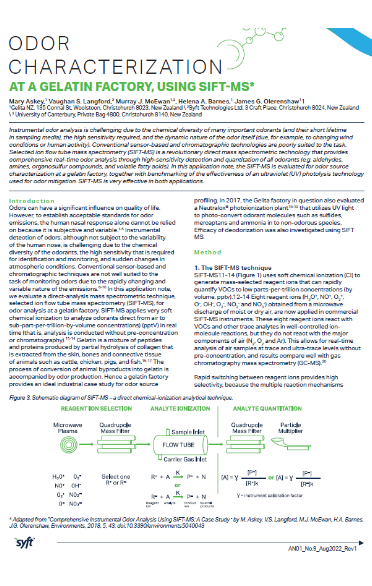
Odor Characterization at a Gelatin Factory Using SIFT-MS
In this application note, SIFT-MS is evaluated for odor source characterization at a gelatin factory, together with benchmarking of the effectiveness of an ultraviolet (UV) photolysis technology used for odor mitigation. SIFT-MS is very effective in both applications due to its wide dynamic range, trace-level sensitivity, real-time detection, and lack of requirement for sample prep or pre-concentration.
High-Throughput Analysis of Volatile Compounds in Air, Water, and Soil Using SIFT-MS
In this application note, we demonstrate high-throughput analysis of BTEX compounds in air, water and soil. We demonstrate how SIFT-MS enables excellent differentiation of the ethylbenzene isomer from the xylene isomers using known O2+ reagent ion chemistry for both air and water. This approach can be applied in real-time and in high throughput applications.
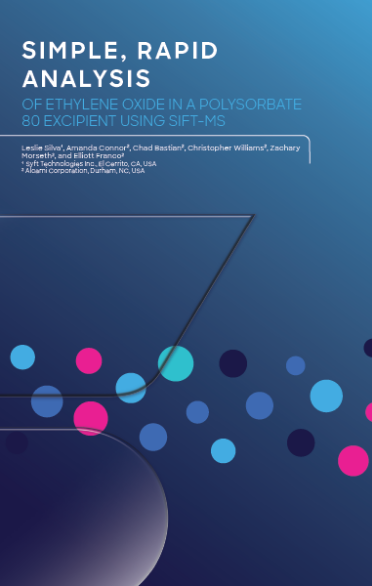
Simple, Rapid Analysis Of Ethylene Oxide In A Polysorbate 80 Excipient Using SIFT-MS
Quantitative ethylene oxide analysis in Polysorbate 80 excipient is greatly simplified using SIFT-MS, with a time to first test result that is eight-fold faster than the current compendial method and a daily sample throughput that is 9- to 14-fold higher.
SIFT-MS Selected Ion Flow Tube Mass Spectrometry
Learn about direct mass spectrometry by SIFT-MS which provides real-time, quantitative analysis of volatile compounds with trace-level sensitivity. There are also no requirements of chromatography, pre-concentration, or sample prep! SIFT-MS is easy to use and interpret data.
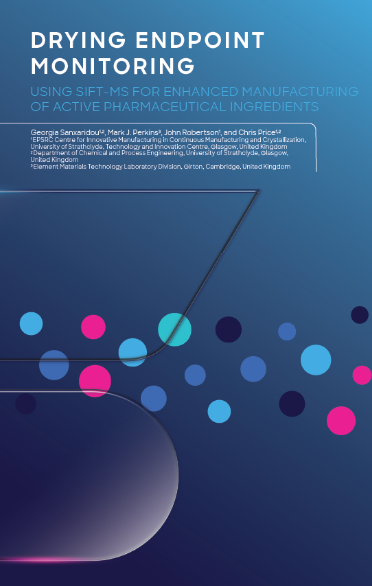
Drying Endpoint Monitoring Using SIFT-MS For Enhanced Manufacturing Of Active Pharmaceutical Ingredients
Process analysis using SIFT-MS enables the drying process to be monitored past the drying end-point measurable using conventional weighing methods. This delivers greater efficiencies for production, and lowers risk of thermally damaging sensitive APIs.
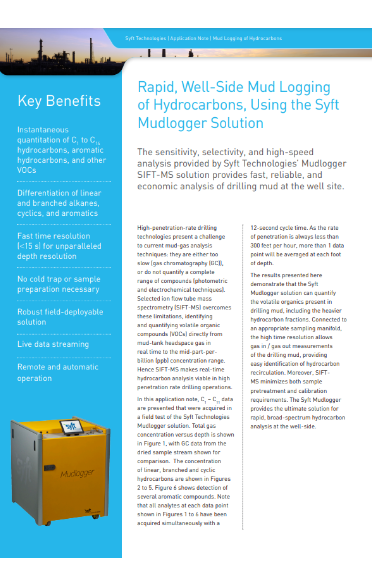
Mudlogging
The sensitivity, selectivity, and high-speed analysis provided by SIFT-MS provides fast, reliable, and economic analysis of drilling mud at the well site. Learn more about how it provides comprehensive, quantitative C1 – C14 analysis of mud gas in less than 15 seconds to part-per-billion-by volume concentrations (ppbv).
